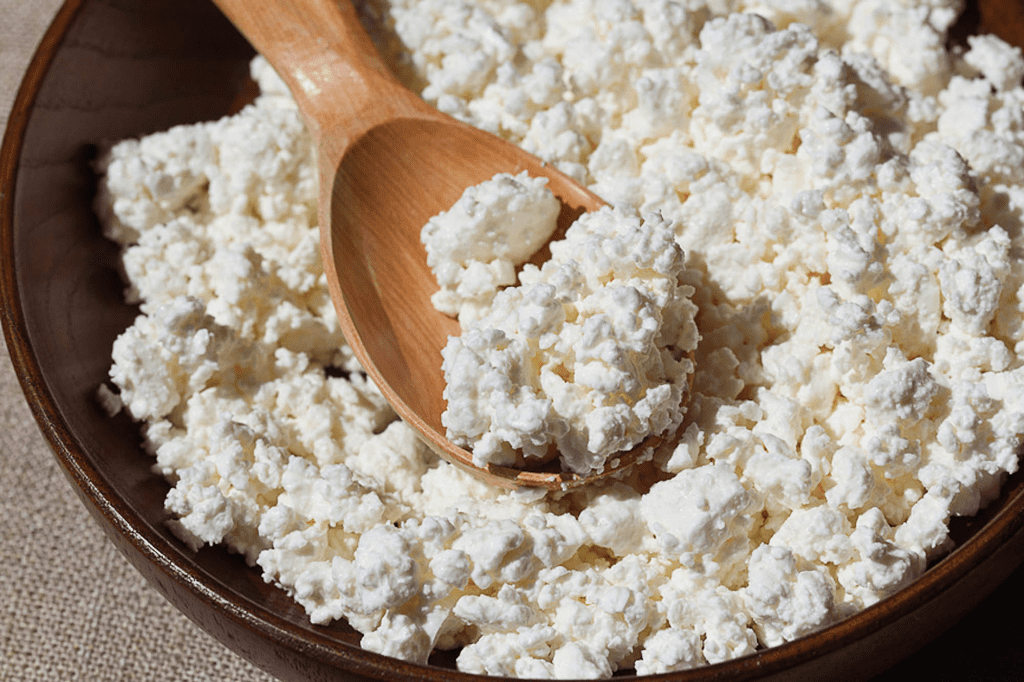Cottage cheese, with its creamy texture and versatile flavor, has earned a spot in the daily diets of many health-conscious individuals. Packed with protein, vitamins, and minerals, it’s no wonder this dairy delight is often hailed as a “superfood.” But what exactly happens to your body if you eat cottage cheese every day? Let’s dive into the surprising benefits and potential drawbacks of making this food a daily staple.
Nutritional Profile of Cottage Cheese

Cottage cheese is a powerhouse of essential nutrients that support various bodily functions. In a typical serving, you’ll find:
- Protein: A whopping 11 grams per serving, which is fantastic for muscle growth and repair.
- Calcium: Essential for strong bones and teeth.
- Phosphorus: Works alongside calcium to maintain healthy bones.
- B Vitamins: These vitamins, including B12 and riboflavin, support energy production and brain health.
Low in carbs and available in low-fat and full-fat versions, cottage cheese can fit into just about any diet. Plus, certain varieties contain probiotics, which are beneficial for gut health. This combination of nutrients makes cottage cheese a super versatile and nutrient-dense option for daily consumption.
How Daily Consumption of Cottage Cheese Impacts Your Health
Adding cottage cheese to your daily diet can bring about a range of health benefits. Here’s how:
1. Supports Weight Management
Cottage cheese is low in calories but high in protein, making it a satisfying choice for those aiming to lose or maintain weight. Protein helps you feel full longer, so you’re less likely to snack between meals. The casein protein in cottage cheese is slow-digesting, which means it keeps you satisfied longer compared to other quick-digesting foods.
In addition, cottage cheese is low in carbs, making it a great option for low-carb and ketogenic diets. By incorporating it into your meals, you can support your weight goals without sacrificing flavor or fullness.
2. Boosts Muscle Growth and Recovery
For those who work out regularly, especially in strength training, cottage cheese can be a valuable addition. Its high protein content, particularly casein, is ideal for muscle recovery and growth. Casein releases amino acids slowly, so eating cottage cheese before bed or after a workout provides your muscles with a steady supply of nutrients.
This slow-release property helps prevent muscle breakdown overnight and aids in muscle repair post-exercise. Athletes and fitness enthusiasts often enjoy cottage cheese as a nighttime snack for its recovery benefits.
3. Enhances Bone Health
Cottage cheese is rich in calcium, a mineral that plays a significant role in bone health. Daily consumption helps you meet the recommended calcium intake, which is crucial for strong bones, particularly as you age. Alongside calcium, the phosphorus content in cottage cheese further supports bone density and helps prevent conditions like osteoporosis.
Consuming cottage cheese daily, especially if fortified with vitamin D, can be a fantastic way to ensure your bones remain strong and healthy.
4. Promotes Digestive Wellness

Certain types of cottage cheese contain live probiotic cultures, which help maintain a balanced gut microbiome. Probiotics support healthy digestion, improve nutrient absorption, and may prevent digestive issues like bloating and constipation. If you want to reap the gut health benefits, look for cottage cheese varieties labeled as containing live or active cultures.
Adding a serving of probiotic-rich cottage cheese to your day can help promote regularity, reduce digestive discomfort, and support your overall gut health.
5. Contributes to Heart Health
Cottage cheese contains potassium, which helps regulate blood pressure by counteracting the effects of sodium. For those concerned about heart health, cottage cheese can be a valuable addition to a balanced diet when paired with other heart-healthy foods. However, keep in mind that some varieties of cottage cheese can be high in sodium. Opt for low-sodium options to enjoy the heart health benefits without the potential downsides.
Potential Downsides to Daily Cottage Cheese Consumption
While cottage cheese offers numerous benefits, there are some potential drawbacks to be aware of:
1. High Sodium Content

Some types of cottage cheese can be high in sodium, which may be a concern for those with high blood pressure or those on a low-sodium diet. Sodium is an essential mineral, but too much can lead to issues like hypertension. Choosing a low-sodium variety can help you manage your intake while still enjoying the health benefits of cottage cheese.
2. Lactose Intolerance
If you’re lactose intolerant, you may experience digestive discomfort when consuming cottage cheese. Symptoms can include bloating, gas, and stomach cramps. While cottage cheese is lower in lactose compared to other dairy products, it still contains enough to cause issues for sensitive individuals. If you’re lactose intolerant, look for lactose-free cottage cheese options or consider other protein-rich alternatives.
Who Should Avoid Eating Cottage Cheese Every Day?
Not everyone can benefit from daily cottage cheese consumption. Here’s who might need to steer clear:
- Those with Dairy Allergies: Cottage cheese contains casein and whey, two proteins that can trigger allergic reactions. If you’re allergic to dairy, it’s best to avoid it altogether.
- People on Low-Sodium Diets: Given its potentially high sodium content, people who need to limit their sodium intake should choose low-sodium varieties or opt for different protein sources.
- Lactose Intolerant Individuals: Although lactose-free options are available, some may still prefer to avoid dairy entirely.

For these individuals, it’s wise to speak with a healthcare provider or nutritionist to find suitable alternatives that fit their dietary needs.
Final Thoughts on Eating Cottage Cheese Every Day
Cottage cheese is a nutrient-rich food that offers impressive health benefits, from supporting muscle growth to promoting bone health and aiding in digestion. When enjoyed in moderation and with consideration of potential downsides, daily cottage cheese consumption can be a wholesome addition to your diet.
Just be mindful of the sodium content, and if you’re lactose intolerant, check for lactose-free options. By tailoring your choices, you can make cottage cheese work for your health goals and enjoy its creamy goodness every day!


